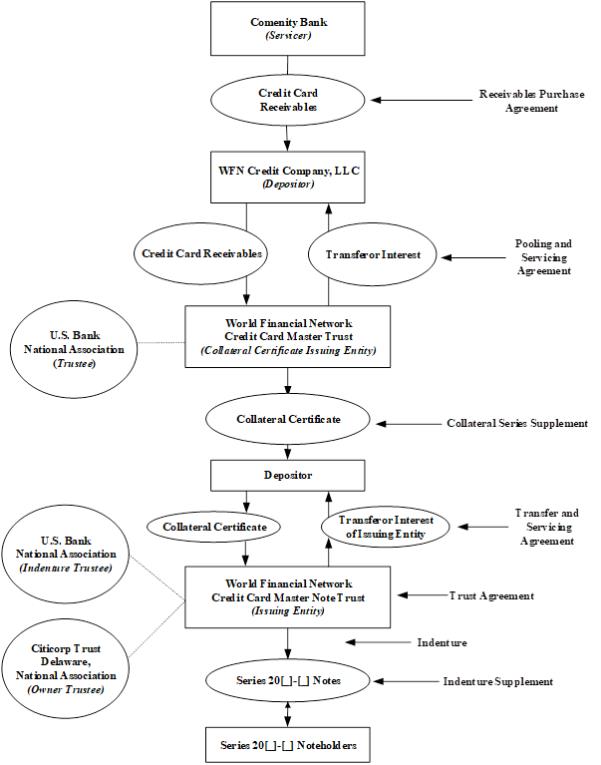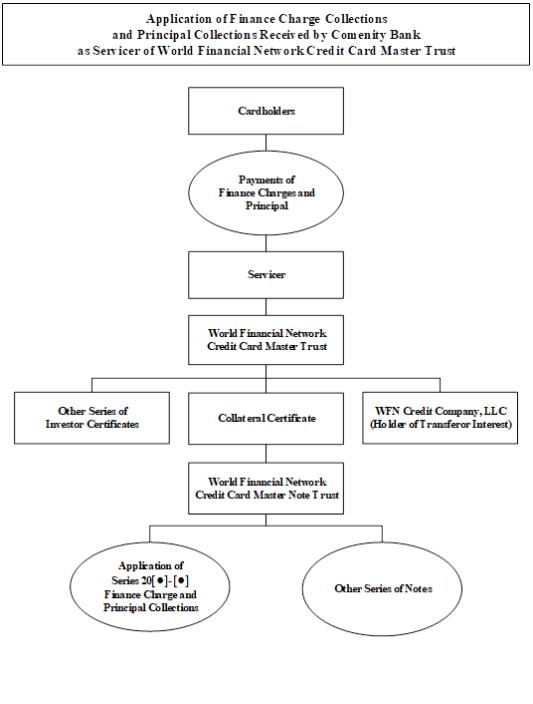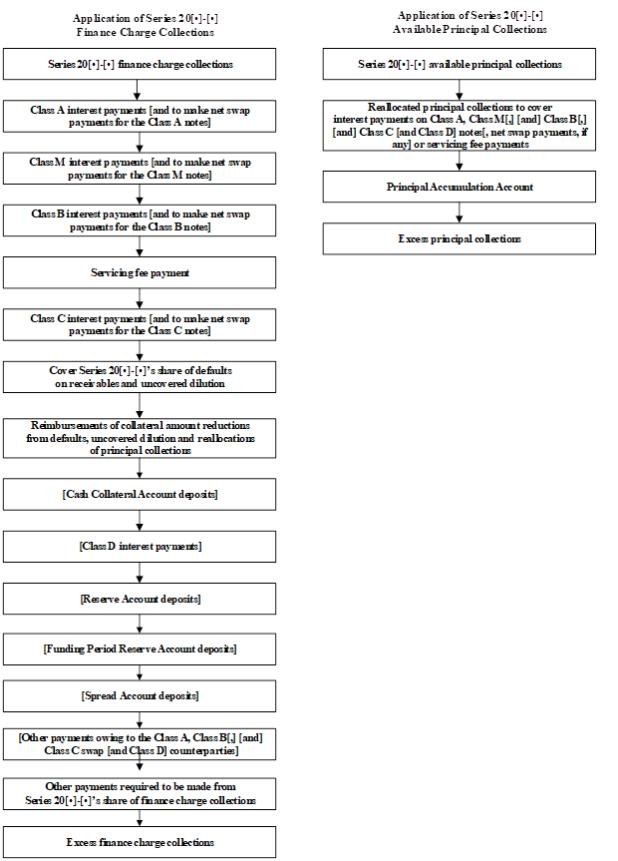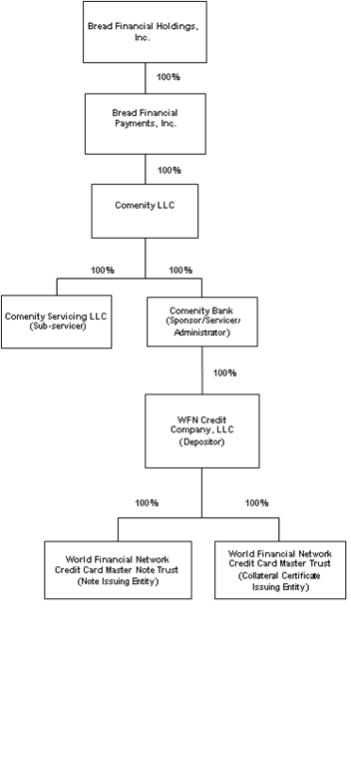The bank is also involved, from time to time, in reviews, investigations and proceedings (both formal and informal) by governmental agencies regarding the bank’s business, which could subject the bank to significant fines, penalties, obligations to change its business practices or other requirements.
Receivables that do not comply with consumer protection laws may not be valid or enforceable under their terms against the obligors on those receivables. If a cardholder sought protection under federal or state bankruptcy or debtor relief laws, a court could reduce or discharge completely the cardholder’s obligations to repay amounts due on its account and, as a result, the related receivables would be written off as uncollectible. See “The Trust Portfolio—Consumer Protection Laws” in this prospectus.
From time to time, Congress and state legislatures may also consider legislation to regulate credit card interchange fees and other credit card practices. It is not clear at this time what new limitations on credit card practices, new required disclosures or restrictions on interchange fees may be adopted by these legislative bodies, if relevant or applicable legislation will be adopted at the federal or state level and, if adopted, what impact any new limitations or requirements would have on the bank.
The bank, the trust, the issuing entity and we could be named as defendants in litigation, resulting in increased expenses and greater risk of loss on your notes.
The bank is subject to the risks of litigation as a result of a number of factors and from various sources, including the highly regulated nature of the financial services industry, the focus of state and federal prosecutors on banks and the financial services industry and the structure of securitization funding programs in the credit card industry.
In the normal course of business, from time to time, the bank has been named as a defendant in various legal actions, including arbitrations, class actions and other litigation, arising in connection with its business activities. While historically the arbitration provision in the bank’s customer agreements generally has limited the bank’s exposure to consumer class action litigation, there can be no assurance that the bank will be successful in enforcing the arbitration clause in the future. There may also be legislative, administrative or regulatory efforts to directly or indirectly prohibit the use of pre-dispute arbitration clauses.
As an assignee of credit card receivables, the trust or the issuing entity, as applicable, could likewise be subject to the risks of litigation. In particular, the United States Court of Appeals for the Second Circuit, Madden v. Midland Funding, LLC (No. 14-2131-cv, 2015 WL 2435657), created some level of uncertainty as to whether non-bank entities purchasing loans originated by a bank may rely on federal preemption of state usury laws, and such decision may create an increased risk of litigation by plaintiffs challenging the trust’s or the issuing entity’s ability to collect interest in accordance with the account terms of certain receivables. In Madden, the Second Circuit concluded that a non-bank assignee of a loan originated by a national bank is not entitled to rely on the National Bank Act’s preemption of state usury laws. The U.S. Supreme Court denied the petition for certiorari filed by Midland Funding, LLC, and the case was remanded to the district court.
Although there can be no assurances as to the outcome of any potential litigation, or the possible impact of the litigation on the bank, the trust or the issuing entity, we believe that the Second Circuit’s decision in Madden and the subsequent opinion by the district court on remand should not limit the ability of the bank to securitize its credit card receivables or the ability of the trust and/or the issuing entity to collect interest on the receivables in accordance with their account terms. We believe the facts presented in the Madden case are distinguishable from the sale of receivables by the bank to us and by us to the trust or the issuing entity in that the bank continues to own the credit card accounts giving rise to the transferred receivables, the bank continues to service the receivables and each of the trust and the issuing entity is an affiliate of the bank.
In June 2019, a complaint was filed in the United States District Court for the Western District of New York (Petersen, et al. v. Chase Card Funding, LLC, et al., (No. 1:19-cv-00741-LJV (June 6, 2019))) seeking class action status for plaintiffs against certain defendants affiliated with a national bank that have acted as special purpose entities in securitization transactions sponsored by the bank. The complaint alleged that the defendants’ acquisition, collection and enforcement of the bank’s credit card receivables violated New York’s civil usury law and that, as in Madden, the defendants, as non-bank entities, were not entitled to the benefit of federal preemption of state usury
50



